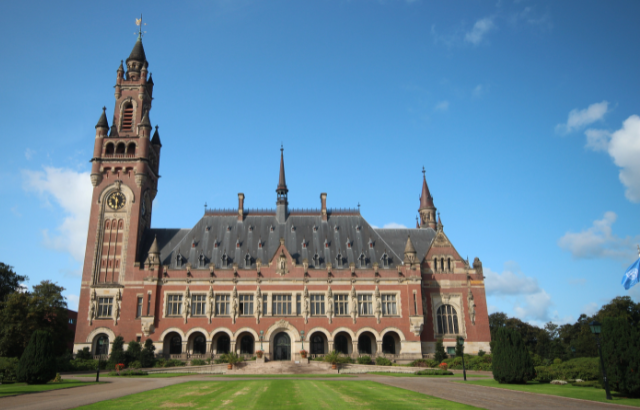Global survey opens up closed doors of international arbitration
The results of a major new survey on international arbitration, conducted by the School of International Arbitration at Queen Mary, University of London and sponsored by global law firm White & Case LLP, were launched this week at an event in Dublin during the International Bar Association’s Annual Conference.

Titled ‘Current and Preferred Practices in the Arbitral Process,’ the survey “examines the extent to which harmonized practices are emerging in international arbitration and whether they reflect the preferred practices of the international arbitration community,” said Paul Friedland, partner and global head of White & Case’s International Arbitration Practice. The survey drew a record 710 questionnaire responses and 104 interviews – more than a five-fold increase from the previous survey.
“For the very first time, the closed doors of international arbitration – a private dispute resolution mechanism – have been opened up for the world to look behind. We now know which practices in the arbitral process are most common around the world and which are preferred, and by identifying the gaps between the current and preferred practices we can help shape the direction of international arbitration. The sheer number of this year’s questionnaire respondents and interviewees makes this survey the most comprehensive empirical study ever conducted in the field of international arbitration,” said Dr. Stavros Brekoulakis, senior lecturer in International Dispute Resolution at QM.
Key findings of the survey include:
Selection of arbitrators: A significant majority of respondents (76 per cent) prefer selection of the two co-arbitrators in a three-member tribunal by each party unilaterally. This shows that the arbitration community generally disapproves of the recent proposal calling for an end to unilateral party appointments.
Organising arbitral proceedings: The IBA Rules on the Taking of Evidence in International Arbitration (“IBA Rules”) are used in 60 per cent of arbitrations: in 53 per cent as guidelines and in 7 per cent as binding rules. Interviewees explained that they prefer adopting the IBA Rules as guidelines as it provides for more flexibility.
Document production: Notwithstanding the differing traditional approaches to document production in civil and common law systems, the survey reveals that 70 per cent of respondents believe that Article 3 of the IBA Rules (documents ‘relevant to the case and material to its outcome’) should be the applicable standard for document production in international arbitration.
Fact and expert witnesses: While cross-examination is sometimes criticised as an ineffective common law procedure, the survey reveals that there is very strong support for the use of cross-examination in international arbitration to test witness evidence. The vast majority of respondents believe that cross-examination is either always or usually an effective form of testing fact witnesses (90 per cent) and expert witnesses (86 per cent).
Pleadings and hearings: Substantive written submissions are generally exchanged by the parties either sequentially or simultaneously. The survey reveals not only that sequential exchange of substantive written submissions occurs much more regularly (82 per cent) than simultaneous exchange (18 per cent), but also that there is a strong preference for this type of exchange (79 per cent).
The arbitral award: How long should a tribunal take to render an award? For sole arbitrators, two-thirds of respondents believe that the award should be rendered within 3 months after the close of proceedings. For three-member tribunals, over three-quarters of respondents (78 per cent) believe that the award should either be rendered within 3 months (37 per cent) or in 3 to 6 months (41 per cent).
Costs: Tribunals allocate costs according to the result in 80 per cent of arbitrations, and leave parties to bear their own costs and half the arbitration costs in 20 per cent of arbitrations. However, only 5 per cent prefer this latter approach, which shows a desire for tribunals to allocate costs according to the result even more frequently than they are currently doing. An overwhelming majority of respondents (96 per cent) believe that improper conduct by a party or its counsel during the proceedings should be taken into account by the tribunal when allocating costs.
“In a departure from previous surveys, views were sought not only from in-house counsel, but also from private practitioners and arbitrators. This provided a pool of respondents which was both highly knowledgeable of international arbitration and dramatically larger than earlier surveys. This critical mass of participants provided authoritative empirical evidence as to what actually occurs in international arbitration, and also enabled us to go further than previous surveys by breaking down the results by categories of respondents, whether by different geographic regions, legal backgrounds or roles,” said Ank Santens, partner in White & Case’s International Arbitration Practice.
“The survey should act as a reference point for the international arbitration community for years to come – not least when arguing points of procedure before arbitrators,” said Paul Friedland.
This year’s survey, the second sponsored by White & Case LLP, was conducted over an eight month period from January to August 2012 by Mr. Jure Zrilic, LLB, LLM (cum laude), White & Case Research Fellow in International Arbitration.
Related items

10 December 2024

10 December 2024
